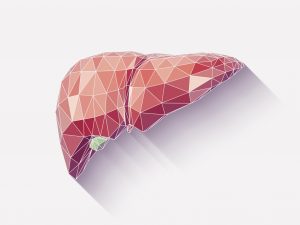
Our liver is a powerhouse that controls numerous functions. So if it gets sick, our health can greatly suffer. Unfortunately, there are many misconceptions about liver disease that can put our liver in harm’s way if we believe them. It’s important then to decipher between what is true and what is false to ensure we are taking the necessary steps to keep our liver as healthy as possible.
Advertisement
Here are three common liver disease myths, which you may have heard or even believed, that simply aren’t true or completely true. But knowing the facts, you can ensure your liver stays healthy and soundly performs its endless functions.
Three liver disease myths you need to stop believing
Liver disease can only be caused by too much alcohol
False. There are over 100 different types of liver diseases, many of which are not even associated with alcohol. Some common causes of liver disease include hepatitis A, B, C, D, and E, iron overload, certain medications taken in excessive amounts, and even fat – causing what is known as fatty liver disease. In fact, fatty liver disease is quickly making its way to be the number one type of liver condition, as obesity rates continue to climb along with sugar consumption.
If you only believe that liver disease is caused by alcohol, then your liver is still greatly at risk by the many other causes. Knowing the other sources of liver malfunction will keep you educated and practicing smart liver habits.
Only adults can get liver disease
Unfortunately, liver disease is not an adult-only illness, and each year thousands of children are affected by liver disease. The main cause of liver disease in children are genetic ailments, like Wilson disease and alpha 1 antitrypsin deficiency, along with viruses and blockages of bile from the liver. It’s best to understand that anyone at any age can develop liver disease, and age is not necessarily a factor.
A liver transplant cures liver disease
Advertisement
Although a liver transplant can greatly improve the outcome of a liver disease patient, it is not a cure. There are many complications that can arise with any transplant – not just a liver one – such as organ rejection or the development of an infection. Furthermore, transplant waiting lists are quite long, there aren’t enough available organs to help all these individuals, and so they wait for years.
A transplant should be an absolute worst-case scenario for someone with liver disease. This is why taking preventative measures to keep your liver healthy is so important – because getting a “new” one is often not the answer (or even an option).
Now that you know the facts behind liver disease, you are more aware that alcohol isn’t your liver’s only threat, and there are other threats out there putting your liver at risk. If you’re concerned about the health of your liver, speak with your doctor about the necessary testing to ensure your liver is okay.
